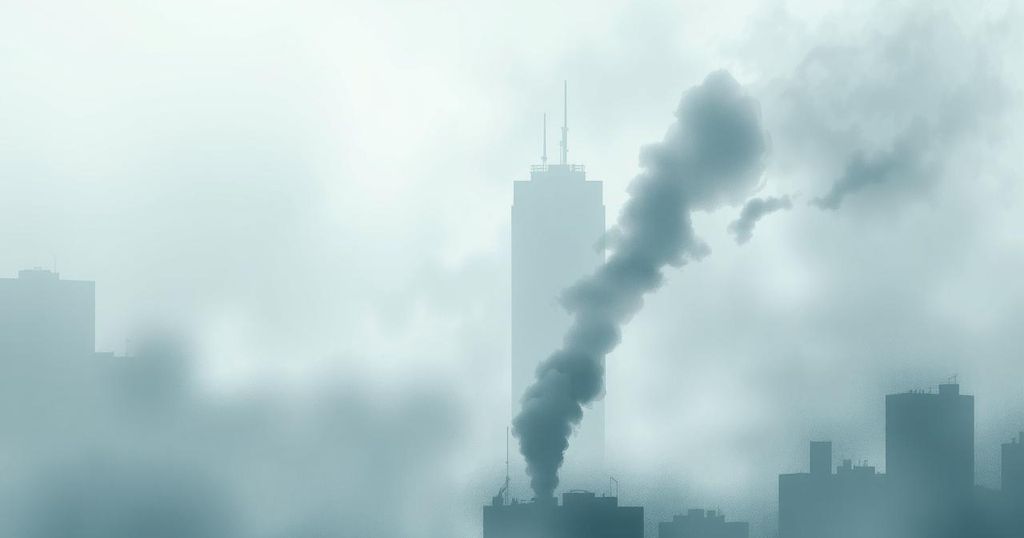Pakistan has been identified as one of the world’s most polluted countries, with air quality significantly below WHO standards due to high PM2.5 levels. The recent cessation of US air quality monitoring programs exacerbates the crisis, leaving the nation vulnerable to gaps in pollution data. Climate change further intensifies the situation, highlighting the urgent need for reliable data and effective pollution control measures.
Pakistan is grappling with severe air pollution, ranked among the world’s most smog-affected countries. New data reveals that the country’s air quality markedly falls below World Health Organization (WHO) standards, with hazardous levels of particulate matter (PM2.5) significantly exceeding permissible limits. In 2024, Pakistan was listed among the top five polluted nations, together with Chad, Bangladesh, the Democratic Republic of Congo, and India.
The average PM2.5 concentration in Pakistan alarmingly surpasses WHO’s recommended limit of 5 micrograms per cubic meter. This was only achieved by 17% of cities worldwide in the previous year. The ongoing smog crisis poses a severe health risk, hindering efforts to improve air quality, especially in major urban areas such as Lahore and Karachi, where pollution spikes, particularly in the winter months when fog and emissions combine.
The country’s reliance on external monitoring for air quality data has become a significant challenge. For many years, air quality sensors from the US State Department provided invaluable real-time pollution data across various developing nations, including Pakistan. However, this program has been terminated due to budget constraints, leaving Pakistan vulnerable to a lack of essential pollution data.
Christi Chester-Schroeder, the air quality science manager at IQAir, emphasized the negative ramifications of losing these monitoring stations. She pointed out that such stations were often the sole providers of real-time air quality information in regions like Pakistan. “The loss of these monitoring stations is a major blow to efforts in regions where pollution data is sparse,” she remarked.
As global pollution levels escalate, climate change exacerbates the situation through elevated temperatures leading to severe forest fires, particularly in Southeast Asia and South America. The discontinuation of the US air quality program may have far-reaching implications for at least 34 countries, encompassing a significant loss of reliable pollution data. Christa Hasenkopf, director of the Clean Air Program at the University of Chicago’s Energy Policy Institute, referred to the decision as a major setback, stating, “It’s a giant blow to air quality efforts worldwide.”
With the worsening climate change effects and the loss of vital monitoring tools, Pakistan faces escalating challenges in addressing its smog crisis. The urgency for reliable air quality data and enhanced pollution control measures has never been more pronounced.
In conclusion, Pakistan continues to rank as one of the most polluted countries globally, facing serious health risks due to air quality well below WHO standards. The closing of the US air quality monitoring program further complicates efforts to combat this crisis by restricting access to critical pollution data. Climate change intensifying these issues underlines the urgent need for reliable monitoring and stronger pollution control initiatives to safeguard public health and improve air quality in the country.
Original Source: tribune.com.pk






